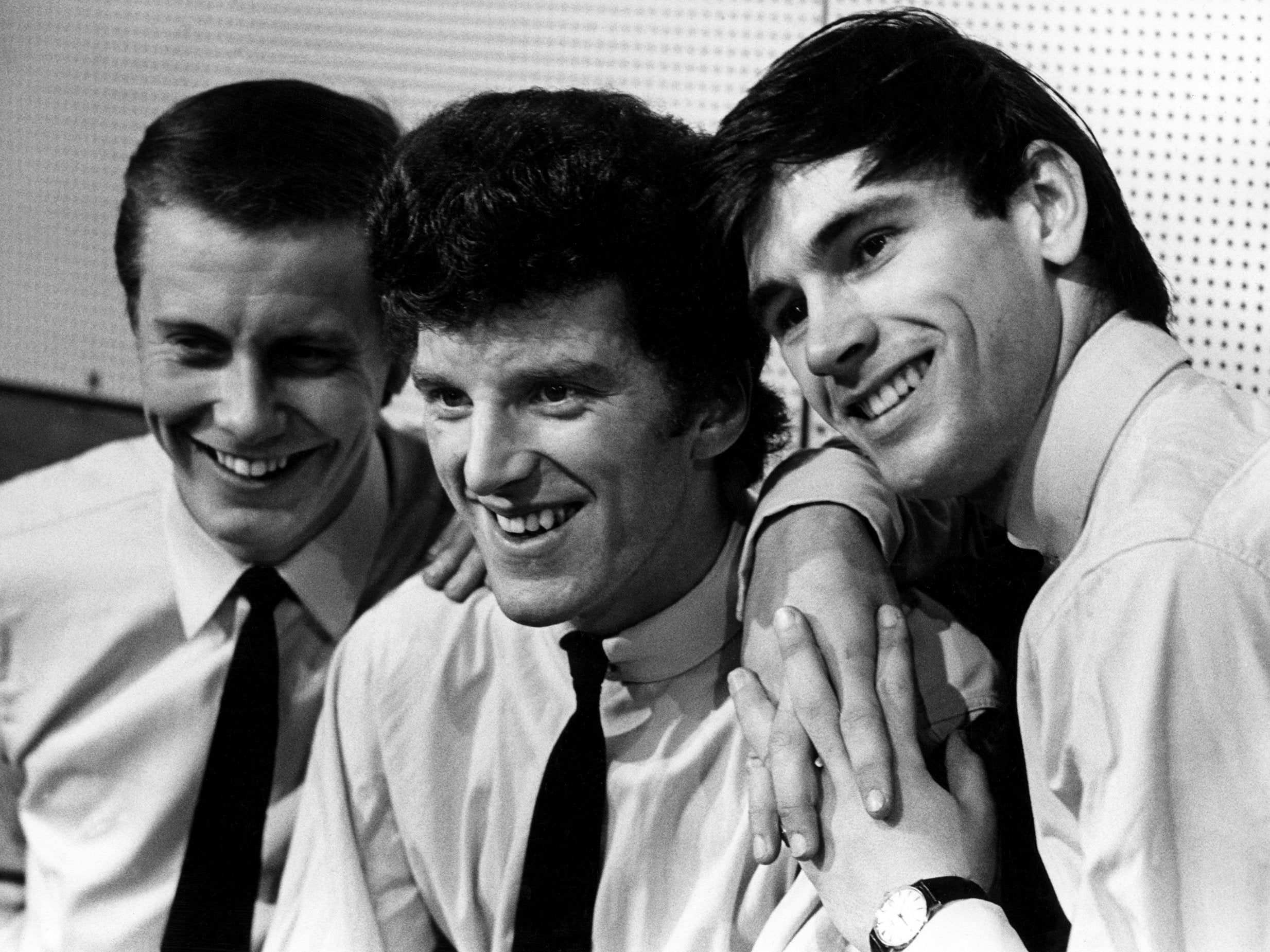Johnny Hutchinson: Merseybeat drummer who turned down The Beatles
He thought the Fab Four were posers and never regretted sticking to his own band, The Big Three

Every music fan in the world can reel off the names of The Beatles. Yet instead of John, Paul, George and Ringo, the Fab Four might well have comprised John, Paul, George… and Hutch.
Johnny Hutchinson, who has died at the age of 79, was the drummer with the Liverpudlian group The Big Three who rivalled The Beatles for popularity before the Mersey sound became a national and international phenomenon in the early Sixties. Known to friends and fans as Hutch, or Johnny Hutch, he filled in on drums behind Lennon, McCartney and Harrison in both 1960 and 1962. Later he claimed he was offered the opportunity to become Pete Best’s successor in the soon-to-be-world-conquering mop-tops before Ringo Starr was given the job.
Hutchinson was born in Valletta, Malta, to an army family but was raised in Toxteth, Liverpool, where he trained as an upholsterer on leaving school. After dabbling with the clarinet, he learned to play the drums and in 1959 was recruited by rock ‘n’ rollers Cass and the Casanovas. With bandmates Adrian Barber (later a producer for Atlantic Records) and Johnny Gustafson (a future member of Roxy Music) he formed The Big Three in 1961 with the intention of playing rhythm and blues. Hutchinson, who had turned down a two-year contract with Johnny Kidd & The Pirates in order to stay local, took lead-vocal duties.
The trio were noted for their loud, aggressive live performances. During the summer of 1962, they played a month-long residency at Hamburg’s Star Club, where The Beatles had honed their stage act. On their return to the relentless circuit in the northwest of England, Hutchinson was asked by Brian Epstein, the Beatles’ manager, to play with the group that night. He had just sacked Best, who, after initially agreeing to fulfil the date, unsurprisingly changed his mind.
Hutchinson had already answered one emergency for Epstein’s favourite clients. In 1960, when pop impresario Larry Parnes and his protege Billy Fury auditioned five Liverpool acts as a possible backing group, he was persuaded to rescue the then Silver Beetles when drummer Tommy Moore failed to arrive on time. Now, two years later, he agreed to sit in at their Chester gig and shows in Birkenhead and New Brighton the following night.
Interviewed by The Sun in 2015, Hutchinson said Epstein stared at him during the Chester date because he was “looking to see how you would fit in with The Beatles”. He turned down an approach – partly out of loyalty to his “good friend” Best and because he regarded Lennon and McCartney as poseurs – before informing Epstein there was “only one group as far as I’m concerned: The Big Three”. He added: “The Beatles can’t make a better sound than that.”
Many Beatles historians acknowledge the veracity of Hutchinson’s story while noting that Ritchie Galvin (of Earl Preston & The TTs) and Londoner Bobby Graham (Joe Brown and The Bruvvers) and were also invited to fill the vacancy. However, 24 hours after the New Brighton date, Ringo – to whom Hutch had once sold a car for £75 – left Rory Storm & The Hurricanes and immediately began his Beatles career at Port Sunlight.
Hutchinson resumed with The Big Three, also now part of Epstein’s stable. Decca Records, looking to cash in on the craze for Merseybeat after spurning its most popular exponents, promptly signed them. After returning from Hamburg they cut “Some Other Guy”, an up-tempo song by American writers Jerry Leiber, Mike Stoller and Richie Barrett, which was also in The Beatles’ repertoire. The single peaked at a modest No 37 in the UK chart in March 1963.
Three further singles and an EP, Live At The Cavern, failed to capture their raw power. In his 1997 book, The Beatles and Some Other Guys: The Rock Family Trees of the Early Sixties, author Pete Frame summed up The Big Three’s problems. “Dynamite live, they were thwarted by Epstein’s and Decca’s efforts to mould them into a ‘nice’ group. They toured Britain, did the TV shows,” he wrote, “but their records belie their wall-shaking, sweaty, roaring, on-stage magnificence.”
By mid-1963 they had split with Epstein and 12 months later they were ditched by Decca. Hutchinson, who drummed at the front of the stage, had become group leader as personnel came and went. In 1966, he dissolved the group, retreated into the building trade and eventually made his living buying and renovating property.
In 2015, Hutchinson appeared in a memorial show at The Cavern for Cilla Black, who The Big Three backed more than half a century earlier, but insisted he had no regrets at missing out on the fame and fortune that came Ringo’s way. His wife of 59 years, Elizabeth, died last year. One daughter predeceased them and he is survived by a son and daughter.
John Howard Hutchinson, drummer, singer and builder, born 18 July 1939, died 12 April 2019
Subscribe to Independent Premium to bookmark this article
Want to bookmark your favourite articles and stories to read or reference later? Start your Independent Premium subscription today.

Join our commenting forum
Join thought-provoking conversations, follow other Independent readers and see their replies